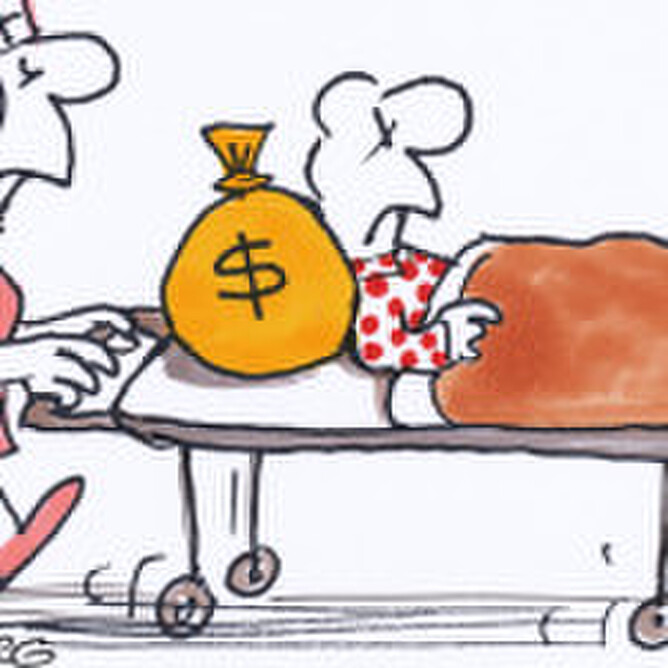Are you a 'normal' kiwi, or are you in dire straits if you lose your income?
This research from Mastercard show that 26% of kiwis can't survive a month without their regular pay.
But, on the hand most New Zealander's can access 3 months income if their income stops.
So, what are the main three ways that your income would dry up?
1. If you are injured or unwell and unable to work. After your sick leave and annual leave ends, what are you going to live on? ACC will kick in for a while if you have been injured in an accident, but what if you have glandular fever, or cancer, or have had a stroke?
This is where our clients have in place income protection insurance or trauma insurance cover. These insurances pay out if you can't earn your income because of ill-health or injury (income protection insurance) or if you are diagnosed with a traumatic illness (trauma insurance.) If you can lay your hands on 3 months worth of income, then you can take a 3 month wait period on your income protection insurance. This will reduce your premiums.
2. Being made redundant from your job. This is something that is hard to plan for, and we have had a number of clients with 'redundancy insurance cover', who have been able to claim on the benefit of this policy. Many of them only claim for 1 or 2 months, as they then get another job, but it gives that security that enough income will come in to cover costs over the time period until you get a new job.
3. Losing your job because of lack of performance. Unfortunately, there is nothing that we at Moneyworks can do to assist you in planning for this, apart from recommending that you keep about 3 months income accessible at all times.
Kiwis in trouble if pay dries up
Twenty-five per cent of Kiwis would not make it to the end of month if their main source of income dried up, a survey shows.
The research from credit card company MasterCard found that while most New Zealanders had the right intentions, with 89 per cent intending to save more, many live from pay day to pay day.
It was surprising that even post-recession a staggering 26 per cent believed they would not survive a month without their regular pay, MasterCard's NZ country manager, Albert Naffah, said
While most could make it through an average of four months, New Zealand still ranked bottom of the table in the Asia-Pacific region, equal with Australia.
Naffah said KiwiSaver had helped improve awareness of the importance of regular saving.
Besides precautionary measures, people were putting money aside for retirement (44 per cent), buying or renovating (33 per cent), international travel (31 per cent) or investing (28 per cent).
While retirement was the top priority, less than a third of respondents had calculated how much they needed to retire, ranking New Zealand 11th in the Asia-Pacific region.
Naffah said it would be interesting to see how mobile applications for money management affected Kiwis' financial skills.
One in five was using the technology - an increase of more than 50 per cent from last year - with a further 15 per cent considering doing so.
MasterCard surveyed 500 New Zealanders aged between 18 and 64.
The survey results follow research from the Commission for Financial Literacy and Retirement Income that found 71 per cent of people could access three months of income in an emergency.
However, only 42 per cent could get the money through their savings and investments.
The rest would have to sell something, take out a loan, hit up family for cash or make an insurance claim.
If you want to make sure you have the most appropriate insurance cover for you – Get a Free Quote Now
If you have any thoughts or opinions that you would like to share, visit us at our Twitter, Facebook or Linked In pages, and comment.
For more blog articles on insurance, check out these posts:
How does income protection insurance work?
Claiming on your income protection insurance – how would it work?
Have you got the best income protection or trauma insurance policy?
By Carey Church






